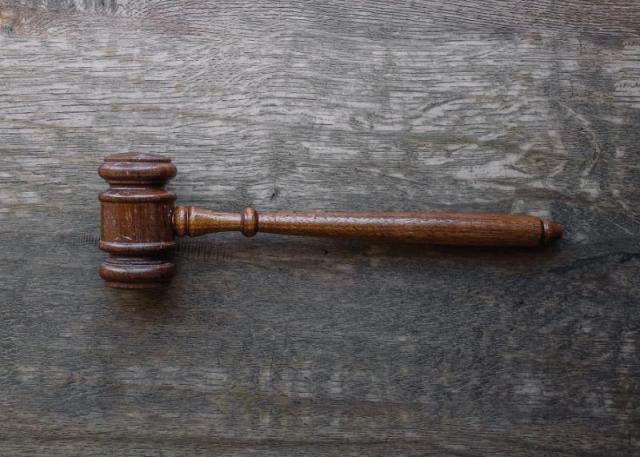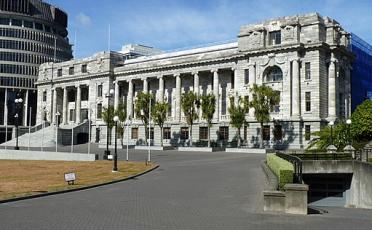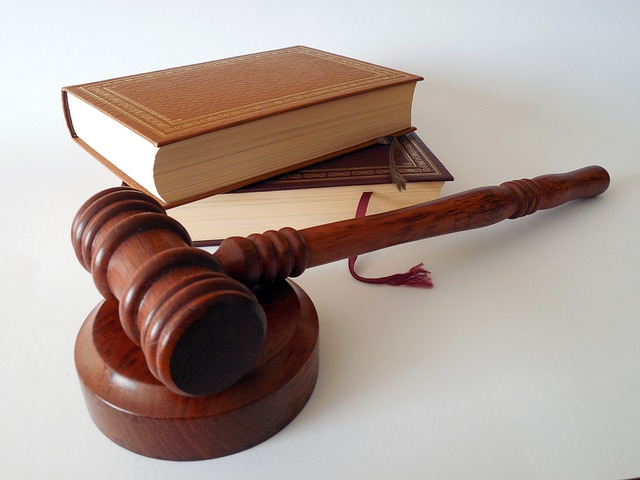Changes to legislation: Sexual Violence Legislation Act 2021
Wed 23 Feb 2022
The Sexual Violence Legislation Act 2021 makes changes to trial processes and the rules of evidence to improve victim/survivors' experiences in court.

The Sexual Violence Legislation Act 2021 passed its third reading in Parliament and on 20 December 2021 received Royal Assent. The Act amends the Evidence Act 2006, Victims’ Rights Act 2002, and Criminal Procedure Act 2011. The purpose of the legislation is to reduce trauma to victim/survivors of sexual violence when they attend court and give evidence.
Read the full Sexual Violence Legislation Act 2021.
The Beehive media release highlights some of the key changes to court processes and rules related to evidence, noting "Most of the Bill's changes were recommended by the Law Commission in 2015 and 2019, and have been called for by experts and advocates."
Key changes include:
- Allowing sexual violence complainants to use alternative ways of giving evidence, including pre-recording cross-examination evidence in appropriate cases (see Section 16).
- Making sure evidence about a complainant's previous sexual interactions with the defendant is off limits, unless it is clearly highly relevant (see Section 8).
- Requiring judges to talk to the jury to dispel any misconceptions relating to sexual violence (known as rape myths) that might be brought into a case (see Section 21).
Other changes include:
- Expanding specialist help with understanding and communicating in court for whatever reason. This was previously only available to witnesses with insufficient English, or a communication disability (see Section 4).
- Requiring judges to intervene when the judge considers questions to witnesses are unacceptable including "the way in which it is asked, is improper, unfair, misleading, needlessly repetitive, or expressed in language that is too complicated for the witness to understand." Judges can take into account the witness’s vulnerability, the nature of previous questions and cumulative impact of questions alongside other factors (see Section 9).
- Further limiting the defendant’s right to cross-examine witnesses in person in a sexual case or family violence or harassment case (see Section 10).
- Allowing video recorded statements to Police by victims of family violence to be used as their evidence in Court (see Section 15).
- Extending protections while giving evidence in sexual cases – such as being able to do so from behind a screen or by video evidence – to propensity witnesses (see Section 16).
- Allowing all victim impact statements to be given with protections such as being screened from the defendant or by video statement (see Section 29). In sexual cases the Court may also be closed to the public (see Section 30).
- Requiring appropriate facilities to be available to victims attending court or participating in court proceedings, such as alternative waiting areas (see Section 31).
Some changes came into effect immediately upon Royal Assent, while other changes come into effect one year after Royal Assent or an earlier date set by Order in Council.
Minister for the Prevention of Family Violence and Sexual Violence, Marama Davidson said:
“We have a significant underreporting of sexual violence in Aotearoa, New Zealand. In the development of Te Aorerekura, our national strategy to eliminate family violence and sexual violence, we heard clearly that our systems must be safe and accessible, so people feel supported to seek help and accountability.
“This Bill will help change attitudes and processes that have traditionally normalised or excused violence.”
Jan Logie, who introduced the legislation in 2019 in her previous role as the Parliamentary Under-Secretary to the Minister of Justice (Domestic and Sexual Violence Issues), welcomed the legislation saying:
“I want to acknowledge and thank the courageous people who have spent years fighting for the changes in this Bill. With roots in our country’s response to the experience of sexual violence victims, it has taken over 12 hard-fought years to deliver change. Survivors’ growing calls for action, and a system that safeguards victims, have made this Bill a reality.
“However, there is more we must do to centre victims and stop violence perpetuating in our society, including reviewing the education of defence and prosecution workforces, so they can test the evidence rather than the witness, and clearly defining consent.
“At the point of harm occurring, both those impacted by violence and those who have used violence need end to end advocacy and support to help stop further violence and harm from happening and heal.
“The evidence is clear that we need to develop alternate justice pathways that provide culturally appropriate, non-adversarial, accountability with the opportunity to heal.
“People in Aotearoa should rightly expect a justice system that restores mana, not diminishes it.”
Cabinet papers related to the legislation have been proactively released. See the previously published Law Commission reports from the related reviews: The Justice Response to Victims of Sexual Violence (2015) and The Second Review of the Evidence Act (2019).
Update: Te Aka Matua o te Ture | the Law Commission released terms of reference for the Te Arotake Tuatoru i te Evidence Act 2006 | The Third Review of the Evidence Act in September 2022. The terms of reference state this review will not include amendments to the Act made by the Sexual Violence Legislation Act 2021. This review will include consideration of te Tiriti o Waitangi | the Treaty of Waitangi, ao Māori perspectives on evidence and any matters of particular concern to Māori.
More information
Elisabeth McDonald is giving a public talk on 15 March 2022 about research exploring victim/survivors experience in rape trials without a jury. The open access book (freely available online), In the Absence of a Jury: Examining judge-alone rape trials (forthcoming March 2022), will also be launched at the talk.
Elisabeth McDonald, Paulette Benton-Greig, Sandra Dickson and Rachel Souness previously researched court processes in adult acquaintance rape jury trials to understand the experience of victim/survivors and identify ways to improve court processes. Findings from the first part of this research were published in the open access book, Rape Myths as Barriers to Fair Trial Process: Comparing adult rape trials with those in the Aotearoa Sexual Violence Court Pilot (2020).
The Chief Victims Advisor commissioned research into practices of cross-examination of children and young people as complainants of sexual violence. The report, That’s a Lie - Sexual violence misconceptions, accusations of lying, and other tactics in the cross-examination of child and adolescent sexual violence complainants (2021), shares findings from analysis of 15 transcripts of the cross-examination of young complainants from trials that took place in the Auckland and Whangārei Sexual Violence Pilot Courts. A key finding was that sexual violence misconceptions were pervasive and "...were typically raised to challenge the plausibility of the complainant’s evidence." The report identifies cross-examination practices that contribute to victim distress, victim-blaming and damage to the quality of evidence young complainants provide.
The Ministry of Social Development has recently published a Literature review on international best court support models for victim-survivors of sexual violence (2020). In 2019 the Ministry of Justice published Attrition and Progression: Reported Sexual Violence Victimisations in the Criminal Justice System (2019).
Oranga Tamariki published an evidence brief summarising a review of support services available for children and adolescents who are victims of sexual crimes in New Zealand and internationally in December 2021.
Related media
Victim regrets reporting sex assault after abuser successfully appeals jail term, Stuff, 20.08.2022
Sexual violence plan stuck in bureacracy, Waatea News, 15.03.2022
Oranga Tamariki's new child sexual violence services in limbo, RNZ, 14.03.2022
Oranga Tamariki didn't meet Māori over new sexual violence services, RNZ, 14.03.2022
Study reveals video statements effective in family harm cases, RNZ, 10.03.2022
2 years in prison or $50K fine for ‘revenge porn’ offenders, One News, 03.03.2022
‘Emotionally disturbing’ - Revenge porn victim’s battle for justice, One News, 02.03.2022
Behind the story: The town that backed a child sex abuser, RNZ, 08.03.2022
Calls for sexual consent education to be compulsory in NZ schools, Re:news, 07.03.2022
Advocates want more support for kids in sexual abuse court cases, RNZ, 01.03.2022
Child sex abuse claimants need more support in court - experts, RNZ, 01.03.2022
The town that backed a child sex abuser, RNZ, 28.02.2022
Advocates want more support for kids in sexual abuse court cases, RNZ, 28.02.2022
‘Victim’ or ‘survivor’ — what’s in a name?, Newsroom, 24.01.2022
Harmful sexual behaviour among children in care rising fast, RNZ, 24.12.2021
New sexual violence law gives better protections to survivors in court, Stuff, 15.12.2021
Sexual Violence Legislation Bill, Ministry of Justice news, 15.12.2021
Claims that sexual violence bill will harm Māori are unfounded, Stuff, 01.07.2021
It’s not ‘stealthing’ – it’s rape, The Spinoff, 20.04.2021
Women's Refuge says justice system is failing sexual assault victims, Newstalk ZB, 05.04.2021
Low rape conviction rate shows system is failing - Women's Refuge, RNZ, 04.04.2021
Raped with her boyfriend asleep in the room: 'I felt sick', Stuff, 21.03.2021
Left in limbo: Police backlog of sexual assault cases continues to worsen, Stuff, 04.03.2021
Image: Ekaterina Bolovtsova from Pexels










